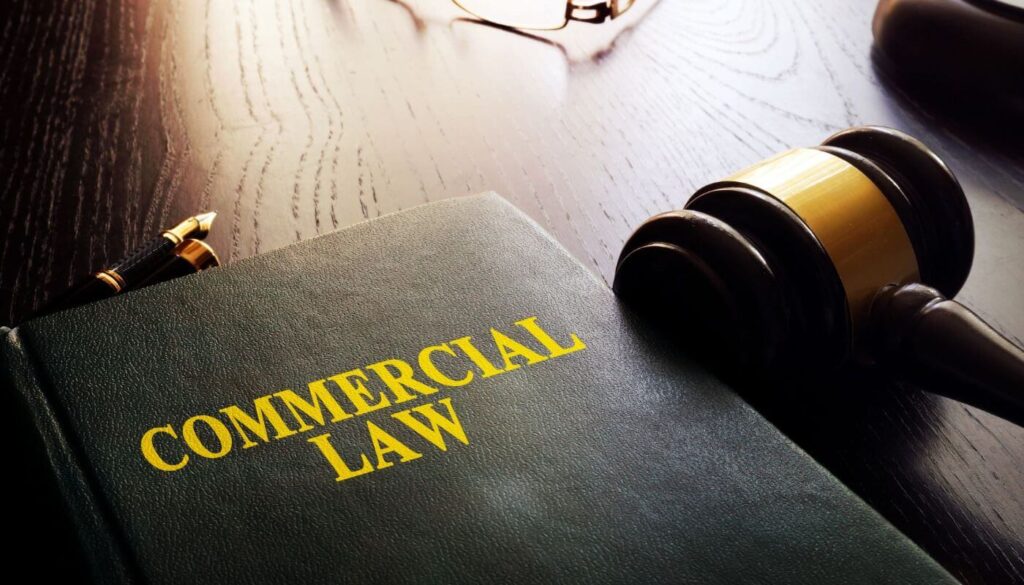In the bustling business landscape of Sydney, hiring the right commercial lawyer can be a pivotal decision for any organisation. Commercial lawyers play a crucial role in ensuring that businesses operate within the legal framework while also protecting their interests. This article aims to provide insights into what to look for when hiring commercial lawyers in Sydney, ensuring that businesses make informed choices.
Understanding the Role of Commercial Lawyers
Before delving into the specifics of hiring a commercial lawyer Sydney, it is essential to understand their role within a business context. Commercial lawyers specialise in a wide range of legal issues that affect businesses, including contract law, corporate governance, intellectual property, and dispute resolution. Their knowledge is not only vital for navigating the complexities of legal frameworks but also for fostering a culture of compliance and ethical conduct within organisations.
Key Responsibilities
Commercial lawyers are tasked with drafting and reviewing contracts, ensuring compliance with local and federal laws, and providing legal advice on various business matters. Their expertise can help mitigate risks associated with business operations, making their role indispensable. They often serve as trusted advisors, guiding businesses through negotiations and helping to structure deals that align with both legal requirements and strategic objectives. Additionally, they may represent businesses in litigation or arbitration, advocating for their clients’ interests in disputes that could otherwise disrupt operations.
Types of Commercial Law
The field of commercial law encompasses several areas, including but not limited to:
- Contract Law
- Corporate Law
- Employment Law
- Intellectual Property Law
- Dispute Resolution
Understanding these areas can help businesses identify the specific legal expertise they require when hiring a commercial lawyer. For instance, in the realm of intellectual property law, a commercial lawyer can assist in protecting a company’s innovations and branding, which are crucial for maintaining a competitive edge. Furthermore, with the rise of digital commerce, the need for legal guidance on data protection and privacy laws has become increasingly pertinent, ensuring that businesses comply with regulations such as the General Data Protection Regulation (GDPR). This multifaceted approach to commercial law not only safeguards a business’s assets but also enhances its reputation and operational integrity in the marketplace.
Qualifications and Experience
When searching for a commercial lawyer, qualifications and experience are paramount. A lawyer’s educational background, professional certifications, and years of practice can significantly influence their ability to provide effective legal counsel.
Educational Background
Most commercial lawyers will have completed a law degree from a recognised university, followed by practical legal training. Additionally, many lawyers will have pursued further specialisation in commercial law, which can be an indicator of their commitment to the field.
Professional Experience
Experience in the relevant industry can be a significant asset. Lawyers who have worked with businesses similar to yours will have a better understanding of the challenges you face and the legal landscape you operate within. It is advisable to inquire about their previous clients and cases to gauge their experience.
Specialisation and Expertise
Commercial law is a broad field, and not all lawyers will have the same level of expertise across all areas. When hiring a commercial lawyer, it is crucial to consider their specialisation to ensure they align with your specific needs.
Industry Knowledge
Different industries have unique legal requirements. A lawyer with experience in your specific sector will be more adept at navigating the complexities of industry regulations and compliance. For example, a lawyer specialising in technology will have a different focus compared to one who primarily works with construction or retail businesses.
Negotiation Skills
Effective negotiation is a vital skill for any commercial lawyer. Whether it’s negotiating contracts or settling disputes, a lawyer with strong negotiation skills can secure better outcomes for your business. Look for evidence of successful negotiations in their previous work.
Reputation and References
The reputation of a commercial lawyer can provide valuable insights into their capabilities and reliability. Seeking references and reading reviews can help in assessing their standing in the legal community.
Client Testimonials
Many law firms will showcase client testimonials on their websites. While these can provide a glimpse into their working relationships, it is also beneficial to seek independent reviews. Websites that specialise in legal services often feature ratings and reviews from past clients.
Professional Associations
Membership in professional associations, such as the Law Society of New South Wales, can be an indicator of a lawyer’s commitment to maintaining high professional standards. These associations often require members to adhere to a code of conduct and participate in continuing education, ensuring that they stay updated on legal developments.

Communication Skills
Effective communication is essential in the lawyer-client relationship. A commercial lawyer should be able to convey complex legal concepts in a manner that is easily understandable, ensuring that clients are well-informed about their options.
Responsiveness
In business, time is often of the essence. A lawyer’s responsiveness can significantly impact the efficiency of legal processes. When interviewing potential lawyers, pay attention to how quickly they respond to your inquiries and their willingness to engage in discussions about your needs.
Clarity of Advice
A good commercial lawyer will provide clear and concise advice. They should be able to break down legal jargon into plain language, helping clients make informed decisions without feeling overwhelmed by technical terms.
Fees and Billing Structure
Understanding the financial aspect of hiring a commercial lawyer is crucial for businesses. Legal fees can vary significantly, and it is essential to have clarity on the billing structure before entering into an agreement.
Fee Structures
Commercial lawyers may charge fees in several ways, including hourly rates, fixed fees for specific services, or retainer agreements. Understanding these structures can help businesses budget effectively and avoid unexpected costs.
Value for Money
While it may be tempting to choose a lawyer based solely on their fees, it is essential to consider the value they bring to your business. A more experienced lawyer may charge higher fees, but their expertise could save your business money in the long run by avoiding costly legal issues.
Initial Consultation
Most commercial lawyers offer an initial consultation, which can be an excellent opportunity for businesses to assess their suitability. This meeting allows potential clients to ask questions and gauge the lawyer’s approach to their specific needs.
Preparing for the Consultation
To make the most of the initial consultation, it is advisable to prepare a list of questions and any relevant documents. This preparation can help ensure that you cover all necessary topics and get a clearer picture of how the lawyer would handle your case.
Assessing Compatibility
During the consultation, it is also important to assess whether the lawyer’s style and values align with your business. A good working relationship can significantly enhance the effectiveness of legal representation.
Long-Term Relationship Potential
For many businesses, hiring a commercial lawyer is not just a one-off engagement but the beginning of a long-term relationship. Building a rapport with a lawyer can lead to better understanding and more effective legal support as your business evolves.
Proactive Legal Support
A lawyer who understands your business can provide proactive legal support, anticipating potential legal issues before they arise. This foresight can be invaluable in navigating the complexities of commercial operations.
Ongoing Legal Advice
As businesses grow and change, their legal needs will also evolve. A lawyer who is familiar with your operations will be better positioned to provide ongoing legal advice that aligns with your current circumstances and future goals.

Conclusion
Hiring a commercial lawyer in Sydney is a significant decision that can impact the success of a business. By considering qualifications, specialisation, reputation, communication skills, and financial aspects, businesses can make informed choices that align with their needs. The right commercial lawyer can provide invaluable support, helping businesses navigate the legal landscape with confidence and ensuring compliance while protecting their interests.
Ultimately, investing time in the selection process will pay dividends in the form of effective legal representation and peace of mind, allowing businesses to focus on what they do best: growing and thriving in a competitive market.
See Also: How Corporate Lawyers help businesses navigate complex legal issues.
